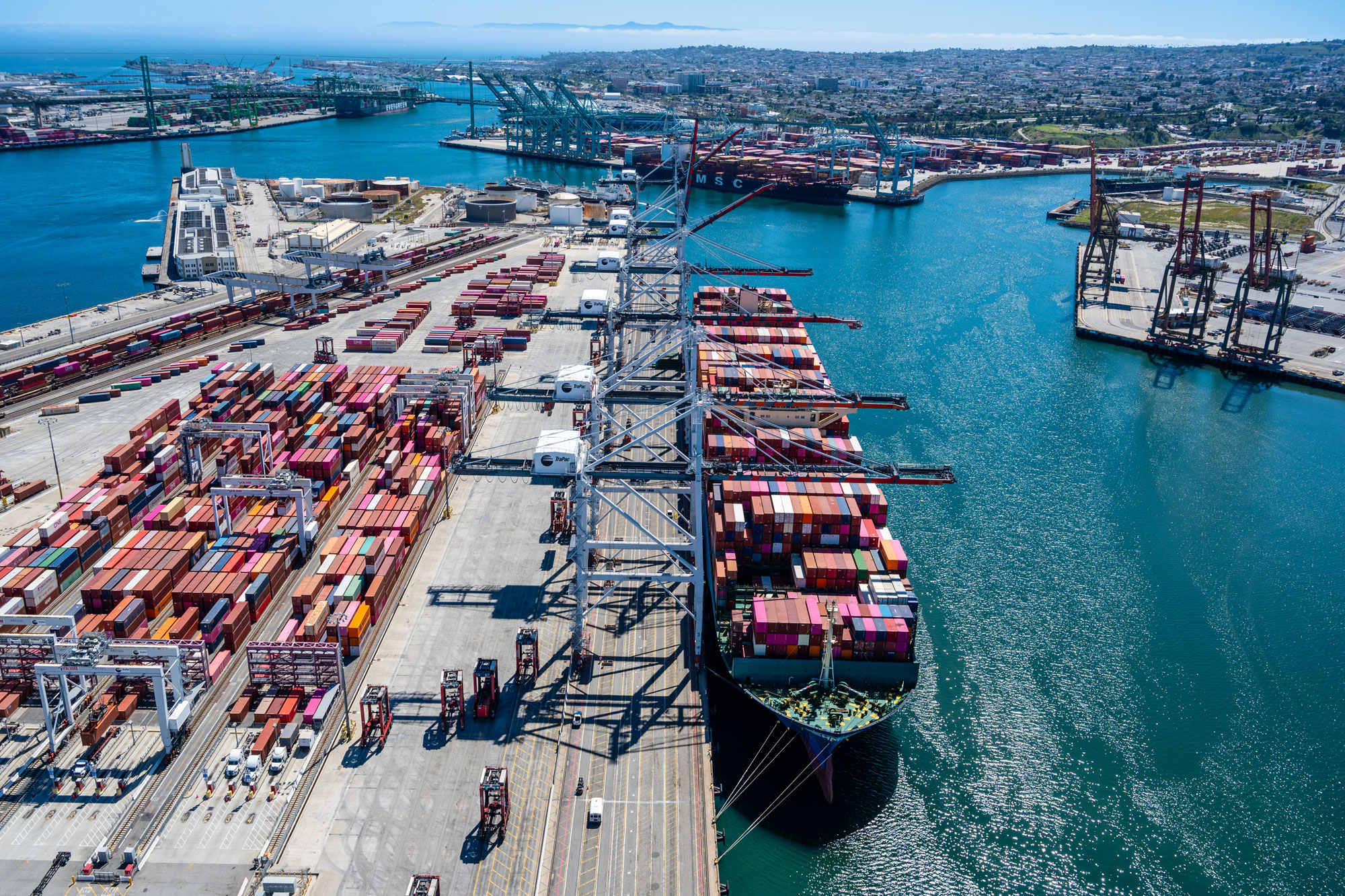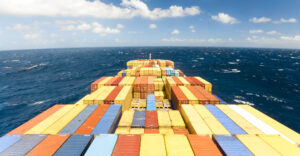The Port of Los Angeles, the busiest container port in North America, is forecasting a one third drop in cargo from next week compared to last year. Gene Seroka, Port of LA executive director, told CNBC’s ‘Squawk Box’ on Tuesday that he expects a decline in incoming cargo volume next week, with projections showing a drop of more than a third compared to the same period in 2024.
Gene Seroka, Port of LA executive director, joined CNBC’s ‘Squawk Box’ to discuss the impact of tariffs on U.S. imports and shipments, impact of new tariffs on Chinese goods on shipments from China, tariff impact on retailers, and more.
“According to our own port optimizer, which measures the loadings in Asia, we’ll be down just a little bit over 35% next week compared to last year. And it’s a precipitous drop in volume with a number of major American retailers stopping all shipments from China based on the tariffs,” Seroka said.
Shipments from China currently account for about 45% of the Port of LA’s business.
“Realistically speaking, until some accord or framework can be reached with China, the volume coming out of there — save a couple of different commodities — will be very light at best,” Seroka said.
Seroka said he thinks U.S. retailers have about five to seven weeks before choices will lessen – due to the impact of the curtailed shipments. “Retailers have about 5-7 weeks of full inventories left and then the choices will lessen,” he said.
Declining numbers of ships arriving stocked with Chinese imports are likely to affect US supermarket shelves soon.
However, Seroka doesn’t see empty shelves coming – but he does see less selection.
“I don’t see a complete emptiness on store shelves or online when we’re buying. But if you’re out looking for a blue shirt, you might find 11 purple ones and one blue in a size that’s not yours. So, we’ll start seeing less choice on those shelves simply because we’re not getting the variety of goods coming in here based on the additional costs in place. And for that one blue shirt that’s still left, you’ll see a price hike,” Seroka said.
The Port of LA executive director predicted on Fox Business news that from the beginning of next week cargo from all locations in Asia which is USA’s traditional hub of imports will be down by more than 35%.
“No one wins in this. We rely on China for manufactured goods,” the executive director noted.
With sweeping tariffs now imposed on all U.S. trading partners, import cargo at the nation’s major container ports is expected to drop dramatically beginning this month, according to the Global Port Tracker report released recently by the National Retail Federation and Hackett Associates.
“Tariffs are taxes on U.S importers ultimately paid by consumers. They are creating anxiety and uncertainty for American businesses and families alike with the speed at which they are being implemented and stacked upon each other. At this point, retailers are expected to pull back and rely on built-up inventories, at least long enough to see what will happen next,” NRF Vice President for Supply Chain and Customs Policy Jonathan Gold said.
“In this environment of complete uncertainty, our forecast for import cargo will be subject to significant adjustments over the coming months,” Hackett Associates Founder Ben Hackett noted. “At present, we expect to see imports begin to decline by May and that they will drop dramatically during the remainder of the year.”
Retailers are warning that U.S. consumers could once again be faced with supply chain snarls that marked the Covid era if President Donald Trump’s tariffs on China remain at their current levels.
This is creating uncertainty about whether U.S. shoppers will have the selection of goods they’ve grown accustomed to in the coming months.
Even if Trump were to reduce the tariffs, the disruption caused to the supply chain could take weeks or months to unravel, market sources say.
Furthermore, importers who aren’t able or willing to pay the tariffs on their goods arriving in the coming weeks, that could result in thousands of unclaimed containers of goods at U.S. ports clogging the supply chain.



